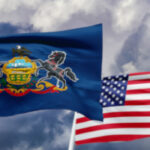The German Sports Betting Association that is also known as Deutscher Sportwettenverband (DSWV) has announced that it rejected calls to ban sports betting advertising in the country. The announcement comes after press reports have revealed that Bremen Senator for the Interior Ulrich Mäurer may be planning on proposing a ban on sports betting advertising.
A Ban on Sports Betting Advertising Would Aid the Black Market
The official announcement of the ban is expected early in December. What is known so far is that the sports betting advertising ban will aim at reducing problem gambling and gambling-related harms. Moreover, such a ban would be looking to reduce the exposure of young adults to gambling.
It was back in March when Germany approved its new State Treaty on Gambling. Under the new Treaty, gambling advertisement is allowed for state-approved and secure offers. The Treaty effectively aims to safeguard consumers from illegal or black market providers. In other words, with the help of advertisements, consumers are directed to the legal market.
“The German Sports Betting Association (DSWV) emphatically rejects the demand of the Bremen Senator for the Interior to ban sports betting advertising in Germany.”
German Sports Betting Association
After years of negotiations, the Treaty on gambling was approved by all 16 state parliaments. Bremen was also among the states that voted to approve the Treaty. This is a prime reason why the DSWV was astonished by Senator Mäurer’s calls to introduce ban sports betting advertising. The Association said that such a ban would serve as an “economic stimulus package for black market providers.” Moreover, the DSWV stressed such a ban would also question the decisions of all 16 state parliaments to approve the Treaty.
Bremen’s Proposal Is Counterproductive, According to DSWV President
Mathias Dahms, DSWV’s president, acknowledged that “the state must not give the impression that it is measuring with double standards and that it wants to give preference to its own gambling offers.” He added that both private and state operators that have a German license have been through an extensive checking process to ensure reliability. Dahms stressed that this applies to advertising as well, which is why advertising illegal operators is prohibited.
“Since there are still many illegal providers active on the German market, the possibility of advertising for permitted providers is of central importance.”
Mathias Dahms, president at DSWV
Dahms deemed the calls from Bremen as “counterproductive.” He said that considering that there are active illegal operators “advertising for permitted providers is of central importance.” According to Dahms, by advertising legal operators, the citizens can differentiate the safe offers within the gambling market. In conclusion, he revealed that after years of negotiation, states have finally found the right balance to market legal gambling offers.




